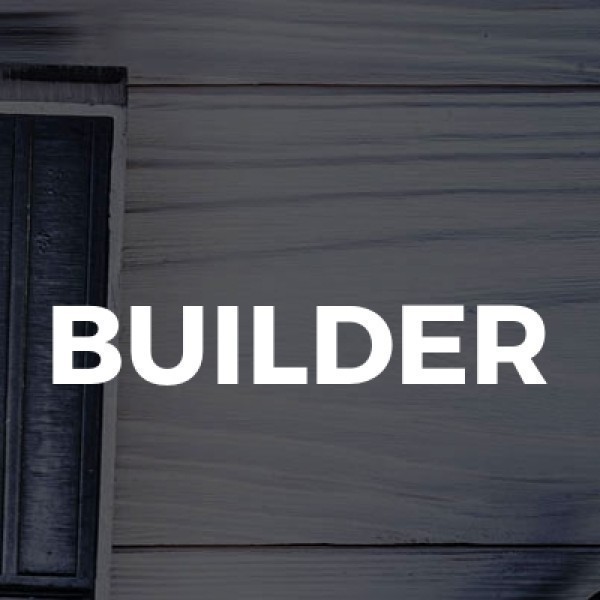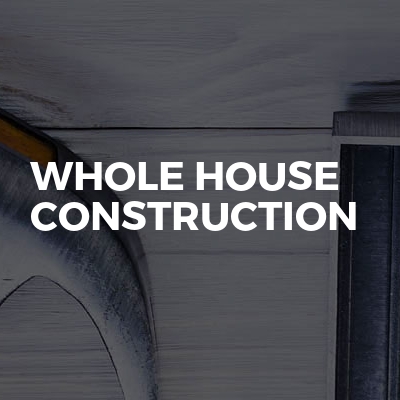Understanding Loft Conversions in Thornbury
Loft conversions in Thornbury have become increasingly popular as homeowners seek to maximise their living space without the hassle of moving. This charming town, with its rich history and picturesque surroundings, offers an ideal setting for transforming unused attic spaces into functional and stylish rooms. Whether you're considering a new bedroom, office, or playroom, a loft conversion can add significant value to your home while enhancing your lifestyle.
The Benefits of Loft Conversions
Loft conversions offer numerous advantages, making them an attractive option for many homeowners. Firstly, they provide additional living space without the need for an extension, which can be more costly and disruptive. Secondly, converting a loft can increase your property's value, often by more than the cost of the conversion itself. Lastly, a well-designed loft conversion can improve the overall aesthetic and functionality of your home, offering a unique and personalised space.
Increased Property Value
One of the most compelling reasons to consider a loft conversion in Thornbury is the potential increase in property value. According to property experts, a well-executed loft conversion can add up to 20% to the value of your home. This makes it a smart investment, particularly in a desirable area like Thornbury, where property prices are steadily rising.
Enhanced Living Space
Loft conversions provide an excellent opportunity to create additional living space tailored to your needs. Whether you require an extra bedroom, a home office, or a playroom for the kids, a loft conversion can be customised to suit your lifestyle. This flexibility makes it an appealing option for growing families or those who work from home.
Cost-Effective Solution
Compared to other home improvement projects, loft conversions are relatively cost-effective. They utilise existing space, eliminating the need for costly extensions or structural changes. Additionally, the return on investment is often higher, making it a financially sound decision for many homeowners.
Types of Loft Conversions
There are several types of loft conversions to consider, each with its own set of benefits and considerations. The most common types include dormer, hip-to-gable, and mansard conversions. Understanding the differences between these options can help you choose the best solution for your home.
Dormer Loft Conversions
Dormer loft conversions are one of the most popular choices due to their versatility and cost-effectiveness. They involve extending the existing roof to create additional headroom and floor space. Dormers can be added to various parts of the roof, providing flexibility in design and layout.
Hip-to-Gable Loft Conversions
Hip-to-gable conversions are ideal for homes with a hipped roof, where the roof slopes on all sides. This type of conversion involves extending the roof's ridge line to create a vertical wall, increasing the loft's usable space. Hip-to-gable conversions are particularly popular in semi-detached and detached homes.
Mansard Loft Conversions
Mansard conversions are typically more complex and involve altering the entire roof structure. They provide the most additional space and are often used in terraced houses. Mansard conversions feature a flat roof with a steeply sloped back wall, maximising the available space.
Planning Permission and Building Regulations
Before embarking on a loft conversion in Thornbury, it's essential to understand the planning permission and building regulations requirements. While many loft conversions fall under permitted development rights, some may require planning permission, particularly if your property is in a conservation area or involves significant structural changes.
Permitted Development Rights
In many cases, loft conversions can be carried out under permitted development rights, meaning you won't need to apply for planning permission. However, there are specific criteria that must be met, such as the height and volume of the conversion. It's crucial to consult with a professional to ensure your project complies with these regulations.
Building Regulations Approval
Regardless of whether planning permission is required, all loft conversions must comply with building regulations. These regulations ensure the safety and structural integrity of the conversion, covering aspects such as fire safety, insulation, and access. Working with a qualified architect or builder can help ensure your project meets these standards.
Choosing the Right Contractor
Selecting the right contractor is a critical step in ensuring the success of your loft conversion. A reputable contractor will have experience with similar projects and a portfolio of completed work. It's essential to obtain multiple quotes and check references before making a decision.
Experience and Expertise
When choosing a contractor, look for one with extensive experience in loft conversions. They should be familiar with the specific challenges and requirements of converting lofts in Thornbury, ensuring a smooth and efficient process. An experienced contractor will also be able to provide valuable insights and recommendations based on their expertise.
Checking References and Reviews
Before hiring a contractor, it's important to check their references and read reviews from previous clients. This can provide valuable insight into their work quality and reliability. Don't hesitate to ask for examples of past projects or speak directly with former clients to get a better understanding of their experience.
Obtaining Multiple Quotes
It's advisable to obtain quotes from several contractors to compare pricing and services. This will help you make an informed decision and ensure you're getting the best value for your investment. Be wary of quotes that seem too good to be true, as they may indicate subpar workmanship or hidden costs.
Designing Your Loft Conversion
The design of your loft conversion is a crucial aspect that will impact its functionality and aesthetic appeal. Working with an experienced architect or designer can help you create a space that meets your needs and complements your home's existing style.
Maximising Space and Light
One of the primary goals of a loft conversion is to maximise the available space and natural light. Consider incorporating skylights or dormer windows to enhance the brightness of the room. Clever storage solutions, such as built-in wardrobes or shelving, can also help make the most of the space.
Choosing the Right Layout
The layout of your loft conversion should be tailored to your specific needs and preferences. Whether you're creating a bedroom, office, or playroom, consider how the space will be used and arrange the layout accordingly. An open-plan design can create a sense of spaciousness, while separate rooms may offer more privacy.
Incorporating Stylish Finishes
The finishes and materials you choose for your loft conversion can significantly impact its overall look and feel. Opt for high-quality materials and finishes that complement your home's existing style. Consider incorporating unique design elements, such as exposed beams or feature walls, to add character and charm to the space.
Cost Considerations
The cost of a loft conversion in Thornbury can vary depending on several factors, including the type of conversion, the size of the space, and the materials used. It's important to establish a budget and work with your contractor to ensure your project stays within your financial constraints.
Factors Affecting Cost
Several factors can influence the cost of a loft conversion, including the complexity of the design, the need for structural changes, and the choice of materials. Additional features, such as en-suite bathrooms or custom storage solutions, can also impact the overall cost.
Budgeting for Your Project
Establishing a clear budget is essential for the success of your loft conversion. Work with your contractor to identify potential costs and allocate funds accordingly. Be sure to include a contingency fund for unexpected expenses that may arise during the project.
Financing Options
If you're concerned about the cost of a loft conversion, there are several financing options available. Home improvement loans, remortgaging, or using savings are common ways to fund a loft conversion. It's important to explore these options and choose the one that best suits your financial situation.
Frequently Asked Questions
What is the average cost of a loft conversion in Thornbury?
The cost of a loft conversion in Thornbury can vary widely depending on the type of conversion and the size of the space. On average, you can expect to pay between £20,000 and £50,000. However, more complex projects with high-end finishes may exceed this range.
Do I need planning permission for a loft conversion?
Many loft conversions fall under permitted development rights, meaning you won't need planning permission. However, if your property is in a conservation area or the conversion involves significant structural changes, you may need to apply for planning permission.
How long does a loft conversion take?
The duration of a loft conversion can vary depending on the complexity of the project. On average, a loft conversion takes between 6 to 12 weeks to complete. Your contractor can provide a more accurate timeline based on your specific project.
Can I live in my home during the loft conversion?
In most cases, you can continue to live in your home during a loft conversion. However, there may be some disruption, particularly during the initial stages of construction. It's important to discuss this with your contractor and plan accordingly.
What are the building regulations for loft conversions?
Building regulations for loft conversions cover aspects such as fire safety, insulation, and access. It's essential to work with a qualified architect or builder to ensure your project complies with these regulations and is safe and structurally sound.
How can I maximise space in my loft conversion?
To maximise space in your loft conversion, consider incorporating clever storage solutions, such as built-in wardrobes or shelving. Additionally, using light colours and incorporating natural light through skylights or dormer windows can create a sense of spaciousness.
In conclusion, loft conversions in Thornbury offer a fantastic opportunity to enhance your living space and add value to your home. By understanding the different types of conversions, planning permission requirements, and design considerations, you can create a beautiful and functional space that meets your needs. With careful planning and the right contractor, your loft conversion can be a rewarding and worthwhile investment.






















